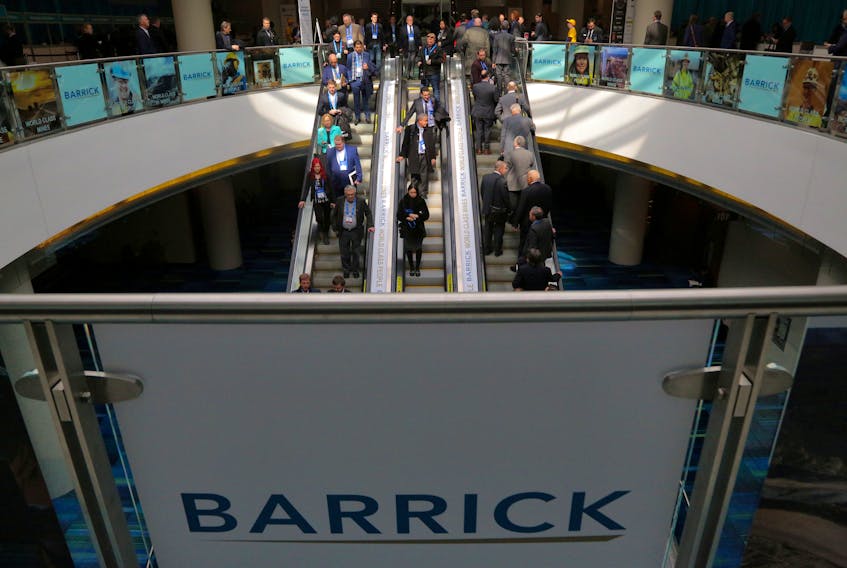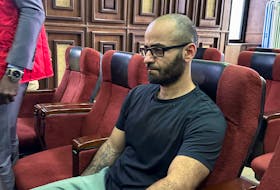The World Bank’s International Centre for the Settlement of Investment Disputes has ordered the Islamic Republic of Pakistan to pay US$5.83 billion to a Barrick Gold Corp. joint venture subsidiary for blocking a mining project nearly a decade ago.
It marks the latest in a string of high-value arbitration awards that Canadian resource companies have won against foreign countries in recent years, although collecting such awards is far from simple or guaranteed.
Barrick, which jointly owns the subsidiary with Chilean copper company Antofogasta Plc, long ago dropped the project from most of its investor materials.
On Monday, both companies signalled an interest in settling the matter with Pakistan, which is set to receive billions of dollars in loans from the International Monetary Fund as it struggles to revive its economy.
“My view is I don’t expect Barrick to get paid anywhere what this number is,” said Carey MacRury, a metals and mining research analyst with Canaccord Genuity. “It just seems unclear what value they get out of this at the end of the day.”
A Barrick spokeswoman said that chief executive Mark Bristow was travelling and unavailable to comment.
The dispute stems from a joint venture between Barrick and Antofogasta that was registered in Australia and known as Tethyan Copper Company Ltd.
The company hoped to develop a low-grade copper and gold project known as Reko Diq, located in Balochistan, a province in southwestern Pakistan, near the border of Iran and Afghanistan.
According to Tethyan’s website, it conducted a feasibility study that found the mine would have cost around US$3.3 billion to build and produced 250,000 ounces of gold and 200,000 tonnes of copper per year for several decades.
At the time, gold prices were marching toward their all-time peak of around US$1,900 per ounce.
Since then, gold prices have dropped markedly, only recently breaking back above the US$1,400 per ounce level.
Canadian mining companies have become more risk averse, too, following a string of overseas investments that failed to deliver returns.
It’s not clear that Reko Diq would still meet Barrick’s hurdles for investment, which have changed since 2011.
“Everybody had a different view of the world at that time,” said MacRury, who added that Barrick could try to sell the project, but is unlikely to want to build the mine there now.
Tethyan said it had invested about $220 million in the project before local authorities blocked it in 2011.
Because Tethyan is an Australian company, it filed an arbitration in 2011 with the World Bank that accused Pakistan of violating its bilateral investment treaty with Australia.
In 2017, the arbitration panel ruled in favour of Tethyan, and, this past weekend, it finally released its calculation of the award to the parties.
Antofogasta said in a press release that the award includes US$4.087 billion in damages to Tethyan, which the arbitrators calculated was the fair value of the Reko Diq project at the time the arbitration was filed. It also includes US$1.75 billion in ongoing interest, plus US$62 million in legal costs.
Although Pakistan’s present economic challenges, including elevated inflation and high indebtedness, make it unlikely the country could pay billions of dollars, such penalties are not without precedent.
In 2018, the Canadian mining company Crystallex International Corp. was looking to enforce a US$1.4 billion arbitration award against Venezuela, even as the country faced famine and economic crisis. Still, Reuters reported that Venezuela made an initial US$425 million payment on the award after Crystallex sought a court-ordered auction of the country’s interest in U.S. Citgo Petroleum Corp. refining business, with the remainder due by early 2021.
Numerous other Canadian mining companies who failed to advance their projects overseas have filed investor-state arbitration claims against foreign countries. The World Bank’s ICSID lists 27 cases involving Canadian companies, but that doesn’t include cases where the company is a subsidiary, such as Tethyan.
In the case involving Tethyan, few filings have been made public — one reason why the investor-state arbitration system has drawn criticism — and so questions remains, such as whether Pakistan holds any avenues to appeal the decision.
According to one filing that is public, lawyers for Pakistan claimed that no project of the size and scale of Reko Diq had ever been built in Balochistan; and the country’s supreme court had ruled that local authorities acted properly in blocking the mining project because there was never a guarantee that Tethyan would be able to convert is exploration license into a mining lease.
Gus Van Harten, a professor and associate dean at Osgoode Hall Law School, who studies investment-state arbitration awards, has been critical of the system, which he said tends to favour investors over states such as Pakistan.
“The difficulty with this award, and with all investment treaty arbitration awards since the arbitrations exploded about 20 years ago, is they emerge from a process which lacks institutional safeguards of judicial independence and procedural fairness,” Van Harten said via email. “As a result, in my view none of the outcomes have the credibility of a judicial decision.”
• Email: [email protected] | Twitter: GabeFriedz
Copyright Postmedia Network Inc., 2019









